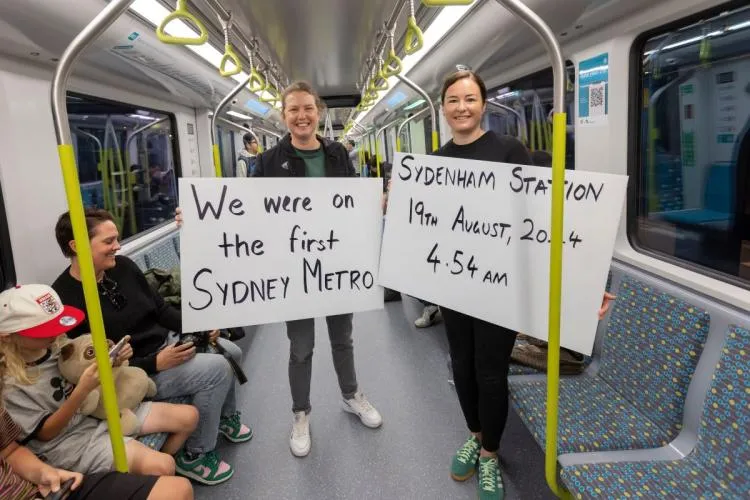Construction work has started on Nottingham's expanding tram network to extend the service to the south and southwest of the city. The extension will more than double the size of Nottingham's tram network with 17.5 kilometres of new track and 28 new tram stops.
As part of the project, Siemens will supply and install 33 new ST950 extra low voltage (ELV) junction controllers, eight signalised pedestrian crossings and 80 ELV tram signals. Junction controllers at a number of existing sites will also be upgra
March 28, 2014
Read time: 2 mins
Construction work has started on Nottingham's expanding tram network to extend the service to the south and southwest of the city. The extension will more than double the size of Nottingham's tram network with 17.5 kilometres of new track and 28 new tram stops.
As part of the project,189 Siemens will supply and install 33 new ST950 extra low voltage (ELV) junction controllers, eight signalised pedestrian crossings and 80 ELV tram signals. Junction controllers at a number of existing sites will also be upgraded with the latest Siemens OTUs for IP communications.
Due for completion by the end of 2014, the network will consist of a total of 51 tram stops, with two new lines linking directly to Line One at Nottingham station, seven park and ride sites, providing service to approximately 23 million passengers a year.
Meanwhile, junction controllers specifically designed and built in the UK by Siemens for light rail transit (LRT) operations are being installed this month in Dubai for the operation of a new tram system.
Linking the Dubai Metro and the Palm monorail, the new Dubai tram system will form an integral part of the transport network and is expected to be ready by the end of 2014.
The project to upgrade traffic signals and interface all associated detection equipment to meet the specific requirements of the tram project was secured by Siemens in association with its partner in Dubai, Scientechnic and includes the new ST950 controller with enhanced software for LRT operation and integral outstation functionality and full in-territory training on installation, configuration and maintenance.
As part of the project,
Due for completion by the end of 2014, the network will consist of a total of 51 tram stops, with two new lines linking directly to Line One at Nottingham station, seven park and ride sites, providing service to approximately 23 million passengers a year.
Meanwhile, junction controllers specifically designed and built in the UK by Siemens for light rail transit (LRT) operations are being installed this month in Dubai for the operation of a new tram system.
Linking the Dubai Metro and the Palm monorail, the new Dubai tram system will form an integral part of the transport network and is expected to be ready by the end of 2014.
The project to upgrade traffic signals and interface all associated detection equipment to meet the specific requirements of the tram project was secured by Siemens in association with its partner in Dubai, Scientechnic and includes the new ST950 controller with enhanced software for LRT operation and integral outstation functionality and full in-territory training on installation, configuration and maintenance.







